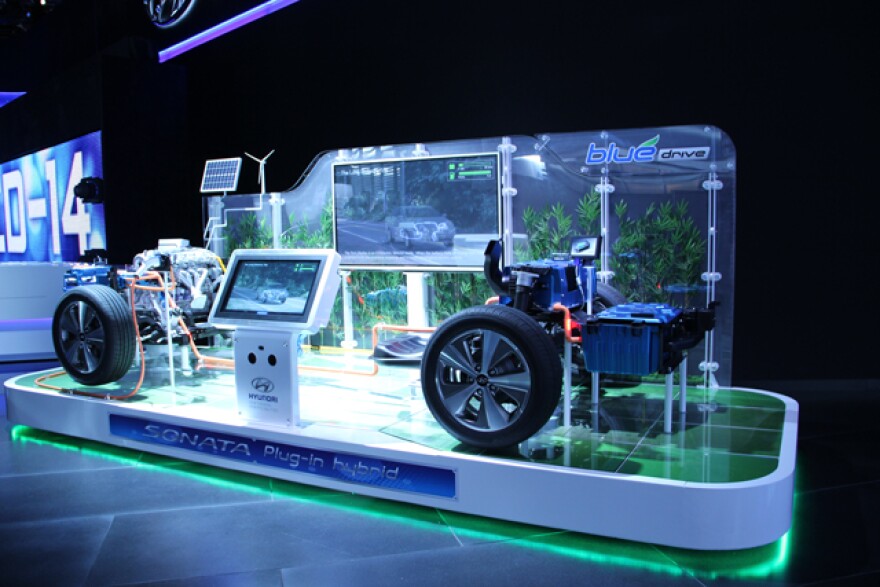The Center for Automotive Research (yeah, the acronym is CAR) is holding its Management Briefing Seminarsthis week in Traverse City. A big part of the conference focuses on how to make the auto industry more sustainable.
Brett Smith is the Co-Director of the Manufacturing, Engineering & Technology Group with CAR.
Sustainability can be such a squishy term - it's hard to define. I asked him what it means for the auto industry.
"I think it is really difficult, and if you look at sustainability, you can think about it for literally the viability, the sustainability of the company. 'Is the company going to be able to keep the factories open, keep the products moving?' - that simplistic," Smith says.
"It also obviously has much bigger connotations to most folks, being long term, the viability of the planet. I think the challenge for the auto industry is combining that sustainable short period with a sustainable long term view and it historically has been a great challenge for the auto industry and one I think is worth talking a lot about."
Making money while getting greener
He says the "multi-billion dollar question" is how the auto industry can stay profitable while becoming more sustainable.
"It’s not easy to make the automobile a more environmentally benign product. By nature, it uses energy and that’s an important part of it. The companies and the Environmental Protection Agency and others are working towards making it a more sustainable viable model, but I think part of the challenge becomes in the technology and in the way we use the vehicle and in the different things the government is trying to do and the industry is trying to do to balance all of that."
So, what's changing?
"The perception I think for most looking at the industry from the outside is, 'Why don't you just do this? It should be easy.' It's not easy."
Smith says for one thing, vehicles are becoming more fuel efficient.
"We have extremely fuel efficient vehicles right now, but nowhere near the goals that are set by the EPA for the coming 10 years. There’s a lot of technology, an enormous amount of technology going into vehicles, yet from the outsider’s point of view I think they’d look at it and say, it’s really just slow, incremental gain. We don’t have fuel cell cars, we don’t have battery electric vehicles in high numbers here because the technology is enormously challenging and enormously costly. And the perception I think for most looking at the industry from the outside is, 'Why don’t you just do this? It should be easy.' It’s not easy.”
Taking action on climate change
Ford has pledged to reduce carbon dioxide emissions from its factories by an additional 30% over the next 12 years. Smith says other automakers are also working to cut their emissions, in lots of little ways.
"Better lighting, roofs that have plants on them. You have less waste; zero waste facilities, I won’t say are commonplace in the industry, but are very much a goal and many are headed that direction. Or for shipping, you don’t have the waste coming out of it. Reducing energy but also using solar and other forms for power," he says.
He says these changes are not always easy and they're expensive, but they can pay back if they're done right.



